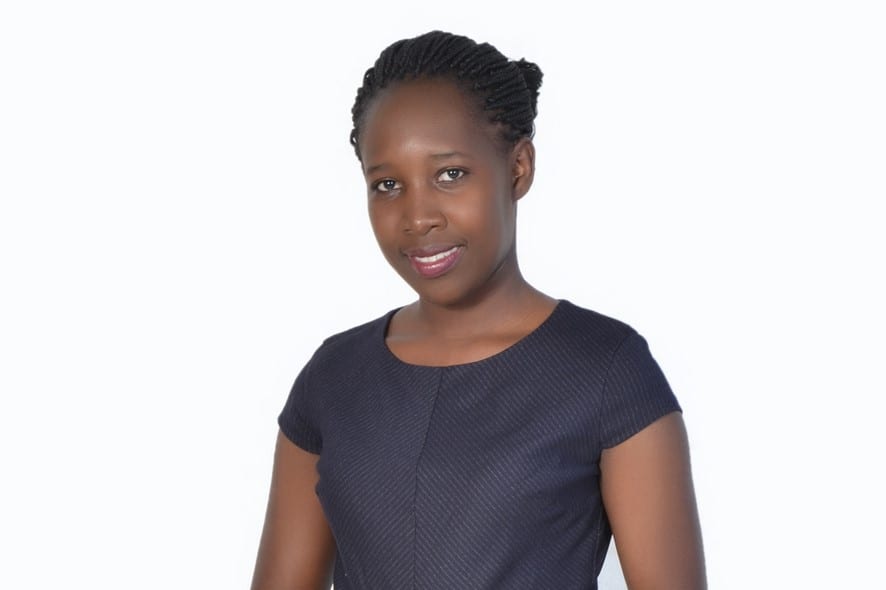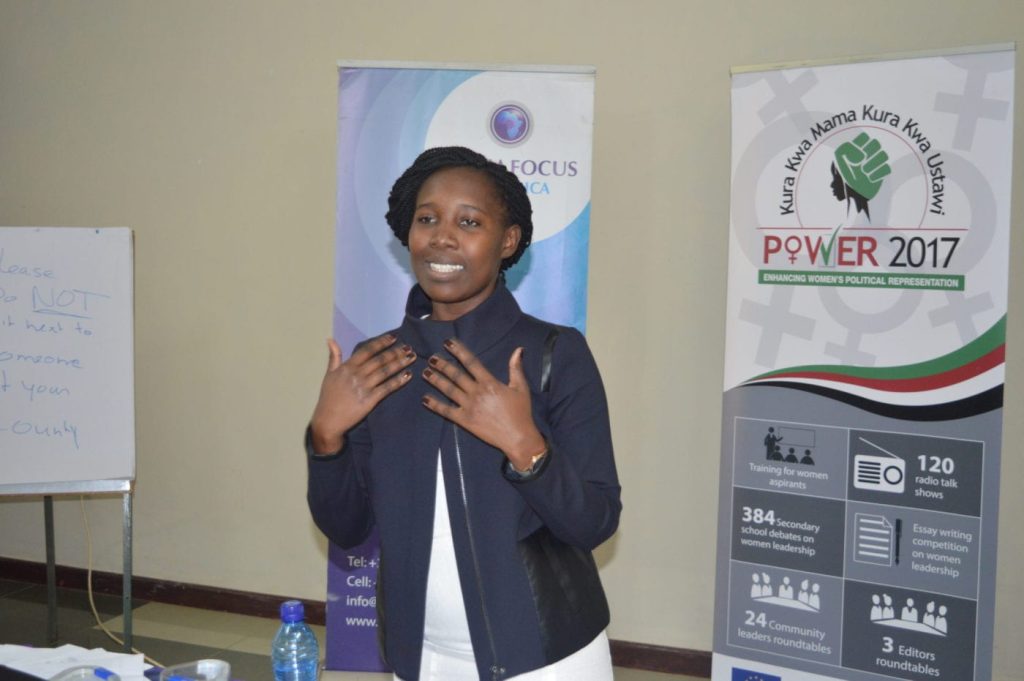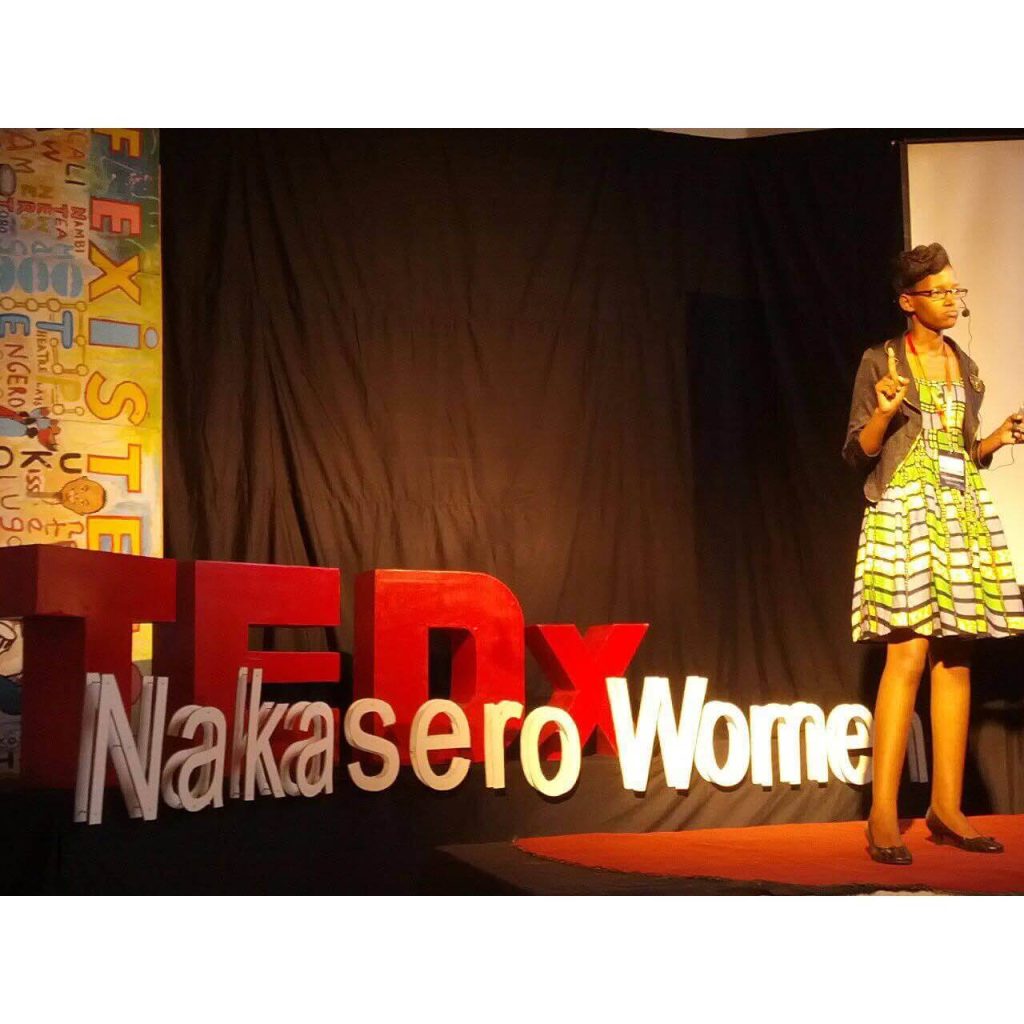Facebook Live with Frenny Jowi: Journalism as a profitable career choice(July 6)

For 4 years, Frenny had a successful career at one of the world’s leading international broadcasters, the BBC. Join us for a Facebook Live session with her on July. 6th, as she shares with us how journalism has been a profitable career for her. Journalism as a sector is evolving, and there are plenty of job opportunities in the field. However, Aspiring journalists have to build their experience and gather certain skill sets to thrive in the industry. If you’re interested in starting (or growing) a career as a media Motherland Mogul, then you have a lot to learn from Frenny Jowi. Frenny started her career in journalism as an intern at the BBC African Bureau in Nairobi and quickly scaled through her career as a journalist, amplifying African voices and stories. Join Frenny on Thursday, July 6th, for a 30-minute Facebook Live session where she’ll be discussing journalism as a profitable career choice, and the skills aspiring journalists need to acquire. Register for this Facebook Live below and ask Frenny all your pressing questions. [bctt tweet=”Interested in a journalism career? Join @Fjowi for a Facebook Live on Thur, July. 6th ” username=”SheLeadsAfrica”] Some of the topics we’ll cover: How to make it as a journalist Media career choices for young people in Africa Moving from employment to entrepreneurship Personal PR: Social media etiquette and how it impacts your professionalism Why young Africans should demand quality content from media outlets(African advocates of public interest journalism) Facebook Live Details: Date: Thursday, July 6th, 2017 Time: 2pm Lagos / 3pm Johannesburg / 4pm Nairobi Where: https://www.facebook.com/sheleadsafrica/ Watch here: https://www.facebook.com/sheleadsafrica/videos/1907640032792641/ About Frenny Jowi Frenny Jowi is a journalist, digital media and PR consultant who is currently consulting at Media Focus on Africa, as a radio producer, media relations trainer and digital journalism trainer. She also works as a volunteer youth mentor and freelance journalist. For 4 years Frenny had a successful career at one of the world’s leading international broadcasters, the BBC. While working for BBC Africa both in Kenya and the United Kingdom, she led several productions including creating digital content for younger audiences and news coverage of historic President Obama visit to Africa. In June 2016, she took one of the lead roles in setting up Kenya’s first 24-hour news channel, KTN News. Her work helped direct the day to day running of the newsroom and training journalists on storytelling and social media skills. She has a BA in media studies from the University of Nairobi.
Frenny Jowi: Never muffle your dreams thinking that you are not ready yet

[bctt tweet=”Reaping profits from the media space while vouching for public-interest journalism is Frenny Jowi’s hustle” via=”no”] Frenny Jowi is a journalist, a digital media and PR consultant. She also creates media coverage strategies with a bias on social media campaigns. Currently Frenny is the lead consultant at Media Focus on Africa, as a media relations trainer, digital journalism trainer, and radio producer. For 4 years Frenny had a successful career at one of the world’s leading international broadcasters, the BBC. While working for BBC Africa both in Kenya and the United Kingdom, she led several productions including creating digital content for younger audiences and news coverage of historic president Obama visit to Africa. Showing off her inner #MotherlandMogul, Frenny is also the Founder Image Masters PR & Communications, where she works in partnership with the UK-based Peter Burdin Africa Foundation and world roving Ilona Eveleens Media. To top that all off, Frenny also works as a volunteer youth mentor and freelance journalist. Tell us, how did you get to the BBC from a local Kenyan media house? I worked briefly at a little-known community radio station, Exodus Network, then moved into a giant newsroom, the Nation Media Group headquarters in Nairobi. It was my first real experience of working in a converged in newsroom. I enjoyed the complexity of things. KTN came to recruit from my school when I was in my third year. My adventurous self then jumped into TV journalism. All this while, the editors made me file international stories as a trainee reporter. The tone of the wire copies about Africa made me uncomfortable. I wondered, where was Africa’s genuine voice on the global debate and take on issues? I wanted the news through African eyes for the world. As a young African I was best placed to tell the story. The international broadcaster I had grown up listening to, was the first to spot my talent, so I joined as an intern after doing some voice test, translation and script writing interviews. I started off as an intern at the East Africa Bureau in Nairobi and quickly gained skills as a bilingual reporter and producer for BBC Swahili and many other BBC World Service Programmes/ My favourite was and still is the Fifth Floor Programme. I told the African story as I had dreamt. I was nominated for the 2014 Kenya Annual Journalism Excellence in Journalism Awards. [bctt tweet=”I told the African story as I had dreamt – Frenny Jowi ” username=”SheLeadsAfrica”] What prompted you to move back to Kenya? Moving to London to work for the BBC was one the most exciting moments in my career at the BBC. I loved London’s palace gardens! Kensington was my best, the Gothic architecture and the Thames during summer. After one year of doing so much including producing President Obama’s visit to Africa, my work visa practically sent me packing! That was not a bad thing, I was to wait for one year cool off period to renew my work visa, but then came flooding ideas of what I could do at home instead of a rigorous visa application process. At the time when I lived in London, there was a growing anti-migrant sentiment. My work visa had labeled me such, migrant staff. London treated me well, but I don’t want to shy away from saying the migrant stories made me very uncomfortable. I was working from the centre of the world when waves of Brexit became more pronounced. I was right at the centre of one of the world’s most influential broadcasters when news of drowning African migrants would dominate the news for weeks. Meeting my former schoolmates who had settled in London permanently, we often talked much about we could do for the continent, it wasn’t just talk for me. I am back home to do something for the continent. Why do you call yourself a media entrepreneur? When I started working in the newsroom, I realized the industry was evolving fast and profits were put first. I felt that this compromised storytelling as public interest was given second priority or none at all. I also saw the potential in digital migration and social media that opened up space for multiple media houses. This was supported with more democratic space in Kenya, that allowed countless radio and TV stations to operate freely. So, I sought to reap profits from the growing media space. At the same time, I wanted to rigorously vouch for a public-interest journalism model. Despite lacking experience in running a business, I registered my company and started off pitching for work as a communications consultant and content producer. I was confident the myriad new radio and TV stations needed quality content. It was just the right time to turn my journalism skills into a strong business idea. My company, Image Masters, had been a dormant Facebook page for four years. I breathed life into it, created a company profile and hit the ground running producing for the BBC’s Arts Daily Programme. I then moved on to consult for KTN, a leading TV station in Kenya that was then setting up Kenya’s first 24-hour news channel. Since then, I have worked with many other clients create alternative educative content for younger audiences. My biggest project now radio plays and shows themed on women leadership. I have a bias for social media which many organizations are now embracing as mainstream. One year on, I am now proudly self-employed and working with great partners to deliver for clients. I am leveraging on partnerships to compensate for the need of staff. The future can only be bright. What is the first thing any young woman who wants to start out as a media entrepreneur do? Let confidence and courage lead you. Never muffle your dreams thinking that you are not ready yet. Carefully reconsider your talents, skills, and networks. Figure out how much of your abilities are lying underutilized. Get to work. I know you may
Rebecca Rwakabukoza: Stay humble, Stay hungry!

[bctt tweet=”It actually gives hope to have media see women as more than the boxes they have ticked us on” username=”SheLeadsAfrica”] Rebecca Rwakabukoza is a Ugandan feminist blogger and freelance journalist who writes at the intersection of gender, feminism, health, and social justice. She is currently co-organising dialogue initiatives to improve gender equity in the Ugandan media sphere. As a 2014-2015 Global Health Corps fellow at ACODEV in Uganda, she led efforts to improve knowledge management and communications for the organization. Rebecca completed her undergraduate studies at Amherst College where she was a United States Student Achiever’s Program Scholar and Koenig Scholar. She spent her summers during college with the Uganda Village Project in Iganga, Uganda Rural Fund in Masaka, and interning at the national daily newspaper, Daily Monitor. As someone who majored English in college, are you surprised to find yourself working in the global health space? What drew you to the field? I was lucky that I studied in a liberal arts curriculum so while I majored in English, I took classes across several fields. I was not surprised to find myself in the global health space because while public health was not offered as a major at Amherst College, I was able to take plenty of classes in the field, both at Amherst and at the other colleges in the 5-college area. Also, I interned in the field. Global health was one of the fields that I knew I would always end up in because it just felt natural. My mother is a nurse, and I grew up knowing that conversations about health were especially important outside the doctor’s room. You’ve spoken widely on global health and social justice, including at TEDx Live in Kampala. For so many of us, public speaking can be overwhelming. Why is it important that we raise our voices for what we believe in? Any advice on how to stay calm on stage? For me too! It was very scary to stand on the stage. I had practiced several times with friends, and the TEDx organizers in Kampala. Some friends in GHC had also filmed me while I practiced and I got to watch myself before. I went over my script several times and was afraid it would sound practiced, so definitely getting to watch myself before braving the stage was good. This might sound cliche but I think ultimately what helped was choosing a topic I was most passionate about. Speaking from the heart should be scary, but it does have a way of calming you when on a stage. Because you know, if anything, at least I was true to myself. What is your major source of inspiration in the face of challenges and obstacles? I draw inspiration from so many places, depending on the gravity of the challenge. If it feels like Rwenzori Mountain level stuff, then I have to call in the big guns: my mother and grans. They field many calls and sometimes we don’t even talk about what the issue is, but just speaking to them about something random helps. I am really big on history so I suspect some of my attachment to them is the stories they tell. Plus they are pretty incredible women. I also get a lot of inspiration from archives so I listen to a lot of history podcasts and visit the Uganda Society library to read old books. Digging through history is my happy place. But also, food. I am a stress eater. Can you tell us about a mentor or advisor who really made a positive impact on your life? There are so many! There has always been someone holding my hand through life, from primary school to now, seeing a better, more hardworking, more focused, smarter, more empowered version of me and helping me work towards her. If I had to pick just one, I would say my college advisor, Professor Rhonda Cobham-Sander. I don’t know how she believed in me or why, but she did and it made all the difference. [bctt tweet=”Rebecca Rwakabukoza says better media coverage is good for women’s health” username=”SheLeadsAfrica”] You’re currently working on improving gender equity and representation of women in the media in Uganda -so cool! What’s the tie in with health? Health ties into everything. Some of the biggest issues women face right now are health-related: access to family planning, gender-based violence, maternal health. The most direct answer, therefore, is better coverage is good for women’s health. But the project I am co-organising however, is more than health and the specific women-related issues. It actually gives hope to have media see women as more than the boxes they have ticked us on -boxes that either have to do with our reproductive health or that see us as caregivers in society. Media that allows for the presence, and wisdom, of women in their coverage and sourcing is good media. It is what media should be period. Anything else is a disservice to the community. And you recently became a mother -congrats! As a woman who is identified as a feminist, what are your hopes and dreams for your daughter’s future? Thank you! My wish for her is that she gets to choose. To choose how she wants to live her life, to choose who she would like to be, and how she would like to contribute to the universe. And if she doesn’t want to contribute, that’s fine too. Now, the hardest part I suspect is going to be my role in this. I hope I am able to teach her enough and may she -goddesses willing- be an even better, stronger, more badass feminist than I will ever be. Which accomplishment -personal or professional- are you most proud of? I am yet to do something and look at it and think of it as my biggest, or best, achievement. I am still working on things and it all only goes higher. My next one is my biggest. What is
